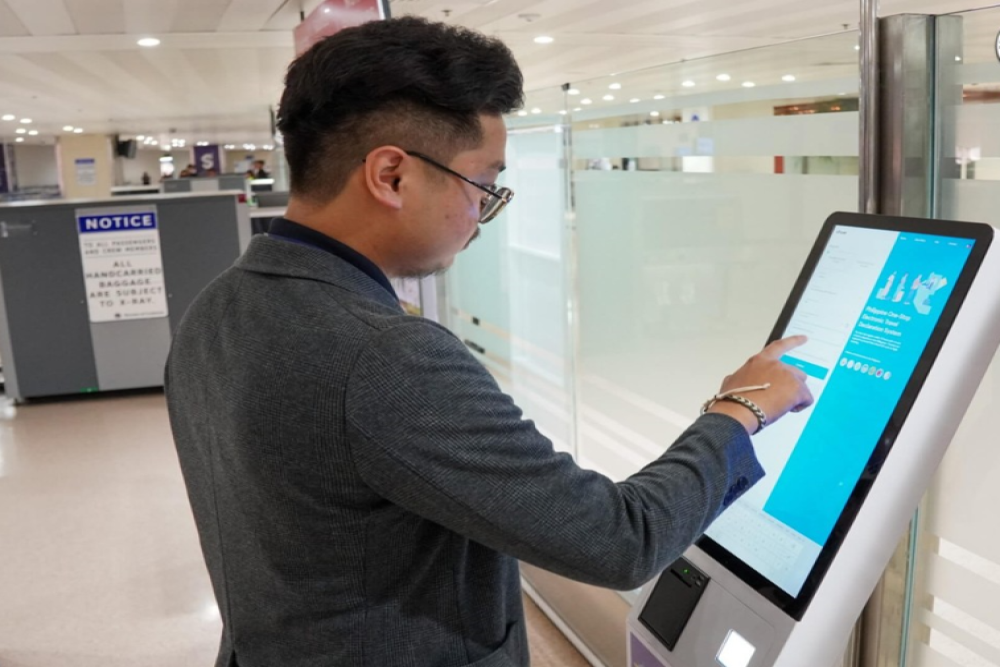Enacting the proposed Open Access Act can provide policymakers an opportunity to narrow the rapidly expanding digital divide that prevents more Filipinos from leveraging the benefits of digitalization and participating in the digital economy, a World Bank (WB) report said.
The new WB report titled “Better Internet for all Filipinos: Reforms promoting competition and increasing investment for broadband infrastructure” said the passage of the Open Access in Data Transmission (OADT) Act is a “promising, viable start” to reform the outdated policies that stifle investment in broadband infrastructure in rural areas.
It has been seen as a crucial legislative measure by the National Economic and Development Authority (NEDA) that needs to be passed into a law.
The proposed Open Access in Data Transmission Act aims to narrow the digital divide in the country by encouraging the development of data transmission infrastructure, removing barriers to competition in data transmission services, and enabling the full potential of e-commerce, digital trade, and applications in the fields of education, health, and agriculture, among others.
Also, the proposed measure seeks to further liberalize the telecommunications sector by removing the requirement of a legislative franchise for players seeking to build their networks, rationalizing access and use of the country's scarce spectrum resources, and making it easier for entrants to provide better services for consumers at more competitive prices.
PH lags in ASEAN
The WB paper published this month noted that, compared to other countries comprising the Association of Southeast Asian Nations (ASEAN), internet connectivity in the Philippines “lags in affordability, speed, and access, creating an uneven landscape for digital participation.”
The cost of fixed broadband in the country is already the highest in ASEAN, said the report.
The price of fixed broadband, essential for micro, small and medium enterprised (MSMEs) to participate in the digital economy, is 11 percent of gross national income (GNI) per capita, more than four times higher than Malaysia and Vietnam, and two times higher than the ASEAN average, the WB study added.
Meanwhile, for mobile broadband, active subscribers in 2022 were 70 per 100 inhabitants, the lowest among large ASEAN economies. More than 50 percent of the ASEAN population not connected to mobile broadband comes from the Philippines. In addition, the cost of a mobile broadband basket was 2 percent of GNI per capita, 1.5 times higher than the ASEAN average.
Mobile broadband connectivity is important because it is considered a driver of consumer adoption of e-commerce, financial inclusion, disaster response, and agriculture practices, the report further said.
According to Affordability Driver Index (ADI) policy scores, the Philippines is among the least favorable in the ASEAN in terms of policy environment for affordable broadband and is among the slowest in the world in promoting any major reforms for affordable broadband.
“Unlike most other countries, the Philippines neither incentivizes nor obliges its largest operators to expand rural broadband coverage,” the report said.
Further, the broadband market in the Philippines is an “effective duopoly,” with the top two players owning international, backbone, middle-, and last-mile connectivity, it added. Meanwhile, in the rural areas, hundreds of small ISPs extend broadband services while facing an unlevel playing field.
The policy note warned that the cost of inaction in passing the OADT bill and repealing outdated telecommunications policies and regulations is “too high for the Philippines.” Among the many consequences are loss of growth opportunity, people remaining unequipped for future jobs, and widening of the digital divide.
The House of Representatives approved House Bill No. 6 or the OADT bill in December 2022, while the Senate is currently deliberating it as Senate Bill No. 2146 at the committee level.
Business support for bill
Relatedly, major business groups have been calling for the immediate approval of the Open Access bill, and for the Philippine President to include it as a priority legislation.
In July last year, ten trade organizations including Better Internet PH, Employers Confederation of the Philippines, Philippine Chamber of Commerce and Industry, and Philippine Exporters Confederation, Inc.
signed a joint statement declaring full support for the swift enactment of the Act.
They stated that this “will address the legal obstacles and binding constraints which have long stifled the growth of the Philippines’ Internet industry” in a world increasingly reliant on connectivity to function and advance.
Advances in digitalization
However, when it comes to digitalizating certain government services, the Philippines has made a number of gains.
One good example is the Bureau of Customs (BOC) being credited for the country's impressive climb to the second spot among ASEAN nations in the 2023 United Nations Global Survey on Digital and Sustainable Trade Facilitation.
The UN Survey, encompassing over 160 economies globally, highlighted the Philippines' advancement by incorporating 60 digital and sustainable trade facilitation measures. This progress has substantially minimized trading time and costs across borders.
Scoring 87.10 percent, the Philippines surged from its third-place standing in 2021, showcasing commendable strides in modernizing customs administration.
The BOC's digitalization efforts have seen 160 out of 166 customs processes undergo digital transformation, achieving an outstanding 96.39-percent digitalization rate. Notably, multiple systems have been developed and launched for improved customs services.
For its part, theDepartment of Information and Communications Technology is also offering local government units (LGUs) the Integrated Business Permits and Licensing System (i-BPLS) software that would enable LGUs and their constituents to apply for and process building permits and occupancy permits electronically.
The previous Electronic Business Permits and Licensing System, or eBPLS, of DICT covered the electronic processing of business permits, which is now possible with the iBPLS.


